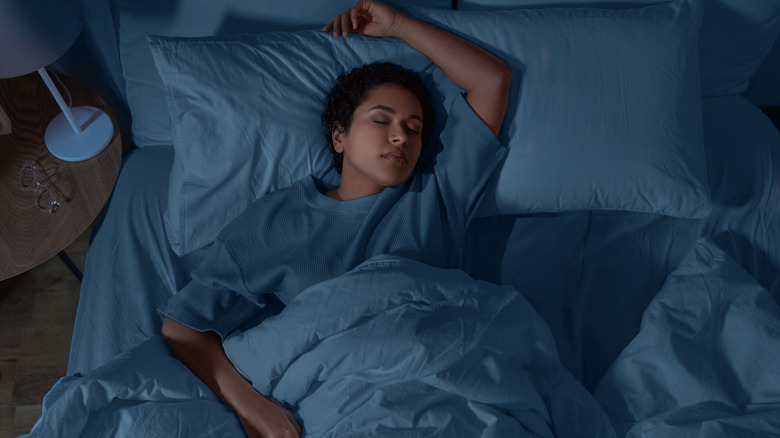As per the U.S. Centers for Disease Control and Prevention (CDC), it’s recommended that adults ages 18 and older get at least seven hours of sleep each night to maintain their health and well-being. Hitting these numbers requires some strategic planning on our part in order to coordinate what time we should be heading to bed. How long it takes someone to doze off can vary, especially when factoring in things like stress, mood, or even how recently you had your last cup of coffee, reports Healthline.
According to the Sleep Foundation, between 15 and 20 minutes is considered a healthy amount of time for the body to take to fall asleep, but do most people find themselves fast asleep within this timeframe? To find out, Health Digest asked 610 survey participants the average amount of time it takes them to drift off to dreamland most nights. Offering five answer options, responses ranged from mere minutes to hours. Here’s how long it takes most people to fall asleep and what it could mean if it’s taking you longer than average.
Most people fall asleep within 15 to 30 minutes

Forty-nine respondents reported taking one hour or more to fall asleep at night, making up a little over 8% of the total answers. With only one more vote, 50 people answered that they take 45 to 60 minutes to fall asleep, accounting for 8.20% of total responses. After that, responses increased exponentially among the top three answer options. In third place was a sleep latency time of 30 to 45 minutes, with 117 votes or 19.18% of respondents. The top answer came down between taking 15 to 30 minutes to fall asleep or taking zero to 15 minutes before snoozing soundly. Ultimately, the greatest number of respondents reported taking between 15 and 30 minutes to fall asleep, with a total of 222 votes. This answer option made up 36.39% of the total answers, while 28.20% (172 people) reported taking less than 15 minutes to doze off.
With the majority of respondents falling roughly into the Sleep Foundation’s suggested timeframe, experts say this indicates a healthy sleep pattern. However, taking longer to fall asleep at night doesn’t necessarily mean that you’re not exercising proper sleep hygiene. Rather, the Sleep Foundation reports that difficulty falling asleep may be tied to certain health conditions, such as insomnia, anxiety, and chronic pain, as well as factors that may throw off your circadian rhythms, such as jet lag or a night-shift work schedule. If you find that a lack of sleep is impacting your ability to function during the day, be sure to consult with your physician.